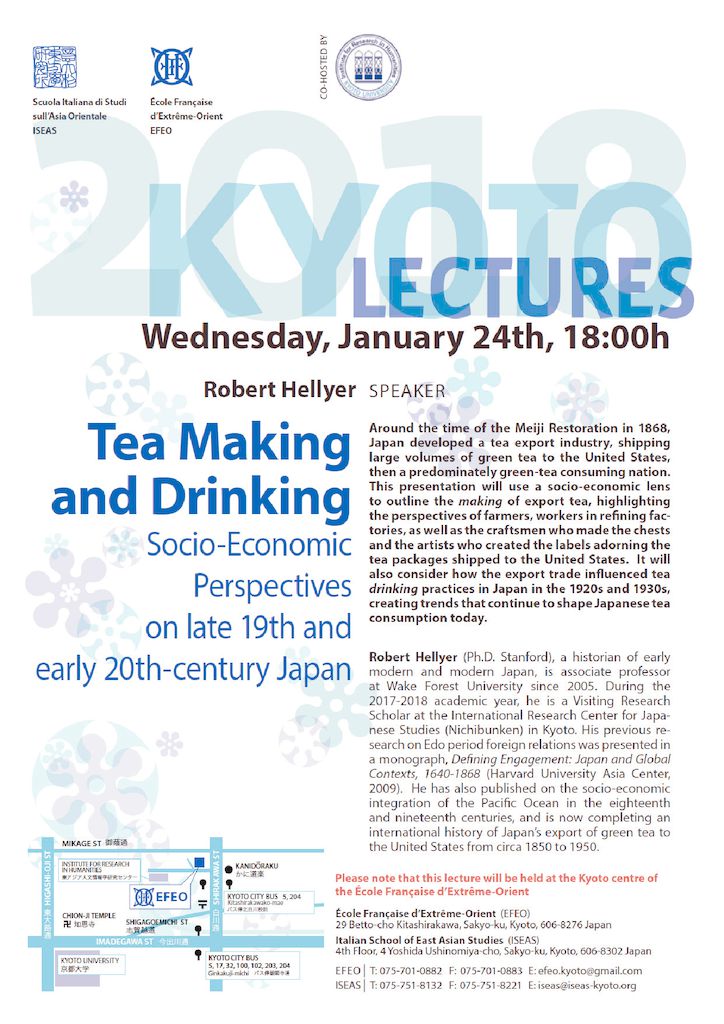Around the time of the Meiji Restoration in 1868, Japan developed a tea export industry, shipping large volumes of green tea to the United States, then a predominately green-tea consuming nation. This presentation will use a socio-economic lens to outline the making of export tea, highlighting the perspectives of farmers, workers in refining factories, as well as the craftsmen who made the chests and the artists who created the labels adorning the tea packages shipped to the United States. It will also consider how the export trade influenced tea drinking practices in Japan in the 1920s and 1930s, creating trends that continue to shape Japanese tea consumption today.
Robert Hellyer (Ph.D. Stanford), a historian of early modern and modern Japan, is associate professor at Wake Forest University since 2005. During the 2017-2018 academic year, he is a Visiting Research Scholar at the International Research Center for Japanese Studies (Nichibunken) in Kyoto. His previous research on Edo period foreign relations was presented in a monograph, Defining Engagement: Japan and Global Contexts, 1640-1868 (Harvard University Asia Center, 2009). He has also published on the socio-economic integration of the Pacific Ocean in the eighteenth and nineteenth centuries, and is now completing an international history of Japan’s export of green tea to the United States from circa 1850 to 1950.
